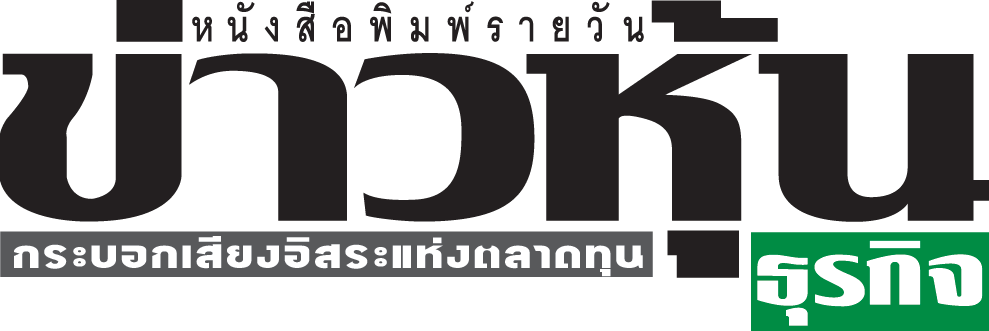
BOT Expects Thai GDP to Contract 5.3% from the Coronavirus Outbreak!
BOT Expects Thai GDP to Contract 5.3% from the Coronavirus Outbreak!
In the Monetary Policy Committee (MPC) meeting on March 25, 2020, Bank of Thailand has announced the resolution of the MPC to maintain the policy rate at 0.75% while seeing the economy to contract 5.3% in 2020.
Bank of Thailand (BOT) holds the interest rate at 0.75% after an emergency cut by 0.25 percentage point last week.
More importantly, BOT projects that the Thai economy could see a sharp contraction of 5.3% from an earlier expectation for the economy to expand by 2.8%. The decline in the economy this year mainly due to the impact of the coronavirus outbreak around the world.
With inflation-adjusted interest rates in Thailand close to zero and the Bank of Thailand close to what officials see as the effective lower bound of its benchmark rate, policy options are becoming limited.
Assistant Governor Titanun Mallikamas said the MPC is ready to take further action if needed and will keep monitoring the markets, including the baht exchange rate. In case of a moderate outbreak, the economy would recover only in 2021.
In the press release on March 25, 2020, Mr. Titanun Mallikamas, Secretary of the Monetary Policy Committee (MPC), announced the outcome of the meeting on 25 March 2020 as follows.
The Committee voted 4 to 2 to maintain the policy rate at 0.75 percent. Two members voted to cut the policy rate by 0.25 percentage point. One MPC member was unable to attend the meeting.
Due to the coronavirus (COVID-19) outbreak, the Thai economy would significantly contract in 2020 and headline inflation would become negative. Nonetheless, the financial system was sound overall, with financial markets starting to function normally. The Committee viewed that the spreading of the COVID-19 in the period ahead would be severe and the situation would take some time before returning to normal. In this situation, the Committee supported the government’s implemented measures to alleviate adverse impacts especially on the affected groups. In addition to the policy rate cut at the previous special meeting, addressing liquidity strains and accelerating debt restructuring for borrowers, especially households and SMEs, must be urgently implemented to have meaningful impacts. The Committee viewed that targeted measures designed to address liquidity needs would be of great importance. Most members thus voted to maintain the policy rate at this meeting. However, two members voted to cut the policy rate by 0.25 percentage point due to the significant economic contraction.
The Committee viewed that the Thai economy would markedly contract in 2020 as tourist figures and merchandise exports were severely affected by the COVID-19 outbreak, the slowdown of trading partner economies, and supply chain disruptions in many countries. Business and household incomes were increasingly affected. As a result, domestic demand, both private investment and consumption, was projected to contract. In this situation, fiscal measures must be a key mechanism to alleviate the impact on the economy and assist various groups affected by the COVID-19 outbreak. Furthermore, financial institutions’ assistance measures to borrowers would alleviate the impact on borrowers as well as contribute to the Thai economic expansion next year should the outbreak subside. Meanwhile, the annual average of headline inflation was projected to be negative this year in tandem with declining energy prices and the contracting economy. The Committee would closely monitor external risks and the impact of the COVID-19 outbreak, together with the effectiveness of the government’s relief measures and each financial institution’s assistance to borrowers.
Stability of Thai financial markets, especially the bond markets, improved after the Bank of Thailand implemented measures to enhance liquidity in financial markets, although developments still warranted close monitoring. Declines in commercial banks’ lending rates following the previous policy rate cuts partly helped reduce interest burdens of borrowers. Regarding exchange rates, the baht depreciated against trading partner currencies, in particular the major currencies, and would likely be volatile. The Committee viewed that Thailand’s external stability remained robust, reflected in a high level of international reserves, and would continue to closely monitor developments in the financial markets as well as foreign exchange markets amid high uncertainties.
The financial system remained sound overall. Commercial banks had robust capital fund and loan loss provision levels. Nonetheless, vulnerabilities increased in some pockets, especially those related to debt servicing capability of households and SMEs that could deteriorate owing to the significant economic contraction. In this situation, coordination between monetary and fiscal measures was urgently needed to support households and SMEs.
Looking ahead, the Committee would monitor developments of economic growth, inflation, and financial stability, together with associated risks, especially the impact of COVID-19 outbreak, in deliberating monetary policy going forward. The Committee would stand ready to use additional policy tools in an appropriate and timely manner. Such tools included the policy rate and other monetary measures that would help enhance the policy rate transmission as well as loan extension by financial institutions to reach the target groups.


